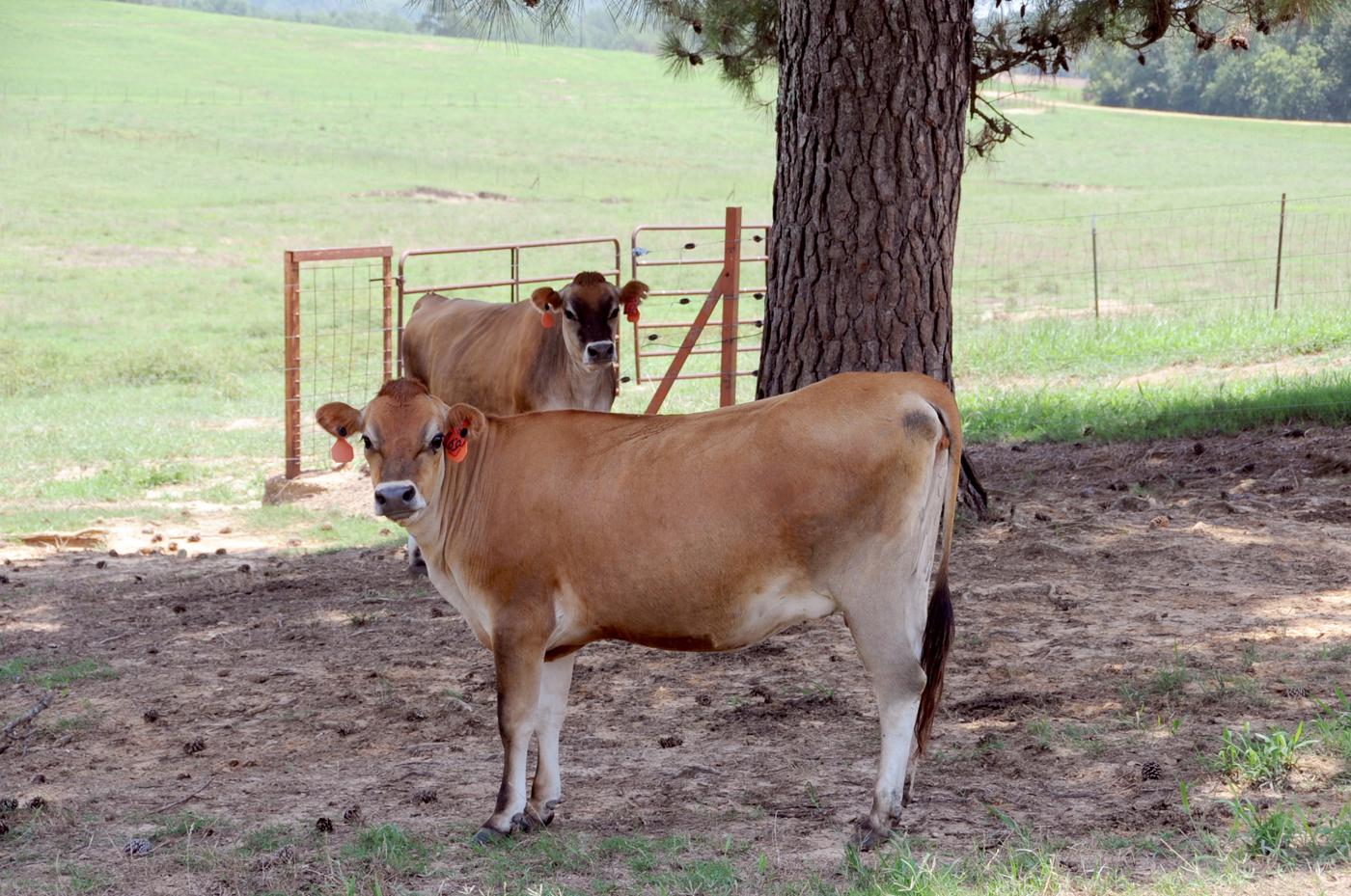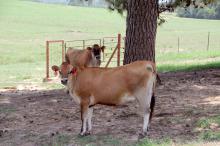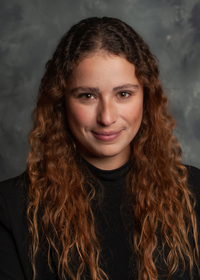Information Possibly Outdated
The information presented on this page was originally released on August 11, 2011. It may not be outdated, but please search our site for more current information. If you plan to quote or reference this information in a publication, please check with the Extension specialist or author before proceeding.
MSU's Jersey herd holds national ranking
MISSISSIPPI STATE – When it comes to national rankings, Mississippi State University is near the top of the list for its prize-winning herd of Jersey cows.
The American Jersey Cattle Association ranked the MSU dairy herd at No. 7 in milk production for 2010. The only university-owned herd to make the top rankings, the dairy herd has been ranked in the top 10 for the last four years. The 35-head Jersey herd is also ranked in the top 10 in all categories for groups of similar size, ranking No. 5 in protein, No. 4 in milk and No. 10 in milk-fat production.
The university’s herd, which also includes 107 Holsteins, produces more than 3 million pounds of milk annually, the equivalent of about 369,000 gallons.
MSU dairy herdsman Kenneth Graves attributes the high ranking of the herd to genetics.
“Several factors go into selecting bulls to mate with the dairy cows,” Graves said. “We look at their feet and legs and bone structure.”
Graves is also using DNA analysis to find the right bull for his cows.
“Years of data are compiled to determine the precise genetic combination required to produce outstanding milk cows,” Graves said. “The extra work is paying off with a prize-winning and productive herd.”
Terry Kiser, head of MSU’s Animal and Dairy Science Department, said the herd is one of the oldest continually bred university-owned Jersey herds in the nation, and the only herd in the South to be placed in the rankings.
“This accomplishment speaks volumes about our dairy management and staff who work 365 days a year taking care of the herd,” Kiser said.
While the dairy is managed for production, teaching and research components are equally important in the revenue-producing operation. Graves and four full-time employees see to the day-to-day operations of the dairy, accompanied by seven to 12 students representing a diversity of majors.
“We employ students throughout campus at the dairy,” Graves said. “Only one of the students we have employed in recent years has previous experience working in a dairy, so it is a great learning experience for students.”
Graves said the labor-intensive job requires dedication and commitment. Milking at the dairy begins at 3:30 a.m., followed by feeding, cleaning, and completing projects to keep the dairy operating efficiently. A second milking at 3:30 p.m. is followed by a similar routine.
“Students work every other weekend and on holidays to get the job done,” Graves said. “We make sure the dairy cows are comfortable and healthy, especially during the hot summer months.”
The comfort and health of the herd contributes to milk production, Graves added.
Fans and sprinklers keep the cows cool during the summer, as does sand bedding, which absorbs moisture.
The state-of-the-art facility features a 16-stall milking parlor equipped with computer technology to determine how much milk is produced by each cow.
“We measure the milk produced and the somatic cell count, an indicator of quality milk,” Kiser said. “The somatic cells are white blood cells, and when the count rises, it is an indication of a problem, such as an infection.”
The herd stays healthy due in large part to Jim Brett, associate clinical professor with MSU’s College of Veterinary Medicine, who sees to the health of the herd.
“We practice preventive medicine, often examining individual animals and the herd as a whole to make sure there are no physical problems,” Kiser said. “If a cow’s production is low or the somatic cell count is higher than normal, we call on Dr. Brett to provide assistance.”
Brett and the faculty at CVM and Animal and Dairy Sciences use the facility as a teaching tool.
“There are about 10 lab classes offered each semester at the location,” Graves said. “Elementary students also learn the magic of milk production, with hundreds of youngsters visiting the facility each year.”
The dairy is located near campus at the Bearden Dairy Research Center in Sessums. Milk produced at the Mississippi Agricultural and Forestry Experiment Station unit is processed on campus and is sold by the carton or used in the cheese and ice cream at the MAFES Sales Store.
“Our milk is of the highest quality, rated Grade A, and is regularly inspected to ensure standards are met,” Graves said.




